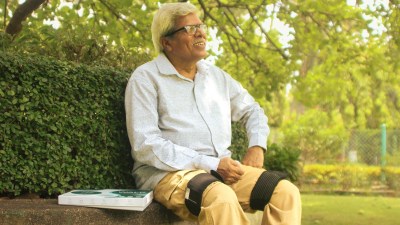Knowledgefinanceresources=Economic power: FM
Even as developing countries like India and China gain prominence in the global arena, they are not yet in a position of dominance or control...

Even as developing countries like India and China gain prominence in the global arena, they are not yet in a position of dominance or control, according to Union finance minister P Chidambaram. Speaking at a session of the India Economic Summit, organised by the World Economic Forum WEF, Confederation of Indian Industry CII and Department of Industrial Policy and Promotion DIPP here today, he said that power has not shifted to developing countries but what has shifted is their ability to compete.
He identified three factors that give economic power to a country 8212; knowledge, control over financial resources and material resources 8212; and said that in each of these areas developed countries have an edge over developing countries.
In the area of knowledge, advanced economies have built such knowledge based and driven societies that they are able to attract the brightest minds from anywhere in the world, who want to be at the cutting edge of research. This gives them a competitive advantage which is hard to overcome, he pointed out.
The world8217;s best financial centres are located not in India and China but in New York and London, through which the advanced economies control the financial resources of the world, which are essential to build productive capacities. 8220;As long as the advanced economies control this, they have an edge over developing countries,8221; he said.
Control over oil and gas 8212; which gives control over energy 8212; is the other major factor for economic progress and this too is in the hands of the advanced economies, even though some of the control has shifted to West Asian countries in recent years.
Hence, the FM concluded, 8220;Power has not shifted to developing countries but what has shifted is the ability to compete.8221; He said that developing countries would one day control the three major factors that affect progress but 8220;for the next 20 years our strength will come from our ability to produce cheap goods and services, the nimbleness with which we manage our economy, demographic dividend, eagerness to take our place in the world and managerial capacity8221;.
In the process, 8220;We will lift millions out of poverty and add great wealth to the world economy,8221; the finance minister concluded in his address.
India may miss MDG target by 3-4 years
NEW DELHI: The FM said on Sunday that India has fallen behind its target in achieving the millennium development goals and might take three to four years more than the original time-frame to achieve them. 8220;Our immediate aim is to achieve the MDG. It is not only in the self-interest of India and China that we achieve these goals but in the larger interest of the world community. Since they set the dates, they must help us achieve these goals,8221; he said.
- 01
- 02
- 03
- 04
- 05






























